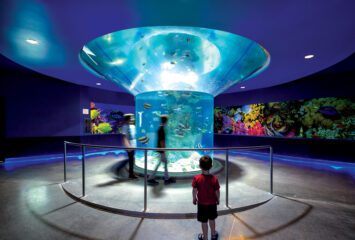Students Visit Violins of Hope Exhibit
March 13- Truly unique experiences don’t come around very often. So when Pardes 6th through 8th graders had the opportunity to participate in a Violins of Hope education program that also included a private tour of the exhibition featuring 21 violins from the Holocaust, in addition to listening to several incredible speakers, the impact was significant.
Violins of Hope is a collection of violins that were used by musicians during the Holocaust. Amnon and Avshi Weinstein, violin makers and co-founders of Violins of Hope, have restored over 60 of these instruments that are now used in concerts, exhibitions, lectures and education programs around the world to teach about the Holocaust as well as to promote messages of tolerance, acceptance and diversity. Thanks to the Jewish Federation of Phoenix, the program runs from February 5 through March 24, 2019 at the Scottsdale Center for the Performing Arts and features over 30 events throughout the Valley.
In preparation for this event, during Parsha on March 7th, first grade teacher Ruthie Joseph, spoke to the Middle School about her family’s violin, which is in the exhibit! Assistant Head of School and Director of Student Life Mitch Flatow also spoke to the students about the Holocaust and the exhibit, and the students saw a video on genocide in Rwanda.
“Violins of Hope is more than simply a community collaboration of music, education and exhibition,” explained Mr. Flatow. “Its impact is personal. Students were mindful of the artifacts on display, like a gentleman’s belt. And they absorbed difficult things like video clips of musicians in the camps.” Several students commented about the ability of the Nazis to make performances look like a normal event, and that the Nazis were truly masters of propaganda.
Also in the exhibit were a video about the genocide in Rwanda and a presentation by an American speaker who lived and worked there trying to save people from extermination. He talked about how in the years between the Holocaust and the genocide in Rwanda, ethnic cleansing continued, and he encouraged the students to use their voices to stand up to injustice and prejudice of all forms.
“Our students really gained a deeper understanding of the significance of the Holocaust, the lessons learned, and how these lessons apply to our world today, ” said Mr. Flatow. The whole experience was very moving and humbling. It was truly an experience of a lifetime.”




